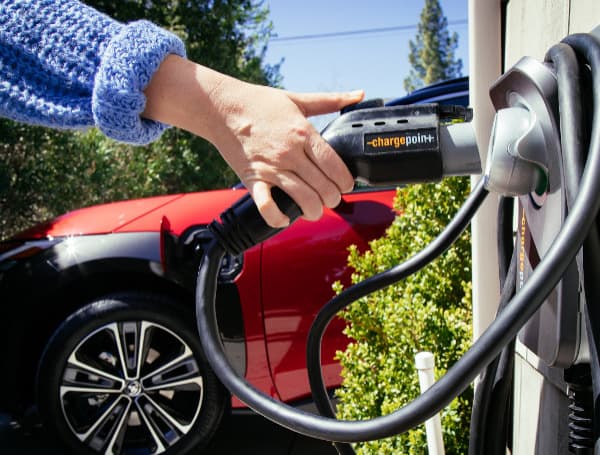(StatePoint)- Electric vehicles (EV) The Biden administration’s well-funded push to build out a national network of electric vehicle (EV) char

The Biden administration’s well-funded push to build out a national network of electric vehicle (EV) chargers has so far resulted in only a handful of installations, according to The Washington Post.
The bipartisan infrastructure bill of 2021 allotted $7.5 billion to subsidize thousands of EV chargers to help the administration’s goal of having EVs constitute 50% of all new cars sold in 2030, but only seven stations in total have been built in four states to date, according to the Post.
The slow rollout of the EV charger funding is unfolding as the Biden administration has recently issued stringent emissions standards for light-, medium- and heavy-duty vehicles that will result in significant increases of EV sales for all three classes of vehicle.
Read: Trump Endorses Florida Congressman Gus Bilirakis
Two years after the infrastructure bill became law, it has so far been responsible for just 38 operational individual charging spots across the U.S., according to the Post. The open stations are located in Pennsylvania, Ohio, New York and Hawaii, and construction of more stations is underway in four other states.
“I think a lot of people who are watching this are getting concerned about the timeline,” Alexander Laska, the deputy director for transportation and innovation at the Third Way, a left-of-center think tank, told the Post.
Twelve states have given out contracts for building charging stations, while 17 states have yet to release proposals, according to the Post. Nationally, EV charging infrastructure remains generally concentrated in more densely-populated coastal areas, according to the Department of Energy (DOE).
Building out a massive web of chargers is a key pillar of the administration’s EV agenda, in part because doing so would ostensibly help assuage the “range anxiety” of drivers who worry about their EV’s ability to make it to destinations without taking risks on charger accessibility, according to the Post. Nearly 20% of all EV drivers indicated that they did not charge their car when they visited a charging station, either because the charger was not working or because the line to use it was too long, according to a 2023 study conducted by JD Power.
Read: White House Egg-Decorating Contest Shows The Other Half Of Biden’s Anti-Religious Angle
Several logistical challenges are apparently responsible for the sluggish rollout, including requirements that subsidized charging stations are built within one mile of an interstate roadway, operate at least 97% of the time and that each charger provides 150 kilowatts of power, according to the Post. The permitting process has also posed problems, especially for projects in remote areas where utility providers may not be prepared to accommodate significant increases in electricity demand that the chargers will bring.
“This funding comes with dozens of rules and requirements,” Laska told the Post. “That is the nature of what we are trying to accomplish.”
Of the $7.5 billion for EV charging contained in the infrastructure package, $5 billion was made available for individual states to access via the National Electric Vehicle Infrastructure (NEVI) program, according to the Post. House Republicans wrote a February letter to top Biden administration officials requesting information and explanations regarding the slow rollouts of NEVI and the related Charging and Fueling Infrastructure grant program.
The White House, the DOE and the Department of Transportation did not respond immediately to requests for comment.
Help support the Tampa Free Press by making any small donation by clicking here.
Android Users, Click To Download The Tampa Free Press App And Never Miss A Story. Follow Us On Facebook and Twitter. Sign up for our free newsletter.
All content created by the Daily Caller News Foundation, an independent and nonpartisan newswire service, is available without charge to any legitimate news publisher that can provide a large audience. All republished articles must include our logo, our reporter’s byline and their DCNF affiliation. For any questions about our guidelines or partnering with us, please contact licensing@dailycallernewsfoundation.org.

